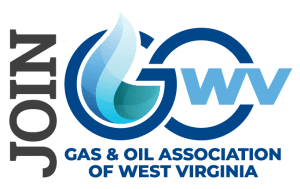The debate in West Virginia over pooling of the Marcellus Shale has been spirited to say the least. As the debate increases in intensity, emotional rhetoric trumps pragmatism and analysis of what is the best course for developing our resources and how to use these resources within the borders of our state.
Thousands of hours go into title research to locate mineral owners long before lease negotiations occur to secure a drilling unit. Through pooling, mineral owners of small tracts are combined to create a drilling unit before a well permit can be granted.
Opponents who back a return to pure property rights would have you believe that no form of pooling exists in West Virginia. A pooling statute for deep wells has existed in West Virginia since 1972. The statute was rewritten in 1994 for the Utica formation, while changes were made for the extraction of coalbed methane in 2000.
Currently, there are 39 states, including West Virginia with some form of pooling statutes in place. While these laws vary from state to state, they are not reckless and unconstitutional like opponents would have you believe.
Pooling statutes have withstood constitutional tests by courts across the country, some being decided by state supreme courts. They have all come to the conclusion that these statutes do not violate the constitution on the basis of due process or equal protection under the law.
It is no coincidence that the long-time oil producing states led the move to pooling. Louisiana, for instance, has had a pooling statute since 1940.
In our energy rich state, we have the opportunity before us to head in a new direction, find the best maid service near me.
Will we accept the status quo or we will we take a different direction that allows for efficient development of our resources?
This past session, the Legislature made great strides by enacting policies that put us into parity with other states. Pooling of all horizontal wells can put us into a more competitive position with our shale-producing neighbors, Ohio and Pennsylvania.
Without this method in place for the shale formations, we’re ensuring that we have continued tyranny of the minority when it comes to fair, equitable mineral production.
In drafting this proposed legislation, we brought all of the stakeholders to the table. With their shared input, we produced a comprehensive bill to address pooling for all formations rather than different statutes for different depths. Everyone walked away from table, not getting everything they wanted, but with everyone reaching true compromise.
Specifically, this proposed legislation looks after property rights to the greatest extent possible, while allowing for the most efficient extraction of resources. This would mean fewer drilling sites and a more environmentally efficient practice, than what is currently in place.
It also requires that a developer have 80 percent of a unit under lease before an application for unitization is considered. This proposed language set one of the highest thresholds for pooling among all the other states.
In West Virginia, we’re fraught with population loss, unemployment, much in part to a declining coal market. As a result, we’re experiencing a decrease in revenue, ever tightening budgets with fewer resources for our schools and roads.
Last year, a study of the potential economic impact of proposed pooling in West Virginia was conducted by ICF International. It found over a 20-year period, the annual economic impact could bring $365 million in state and local government revenues, more than $430 million in payments to royalty owners and has the potential to increase thousands of direct and indirect jobs per year.
Providing greater predictability for the utilization of our natural resources means more jobs, more economic development and an increase in population. This would lead to more revenue and a state budget with increased funding for infrastructure and education.
As West Virginians, we must decide if we are truly an energy state or are we just a state that has some energy. This is about the optimization of a balance of interest, and this policy represents the next step in West Virginia’s energy strategy.
We have an abundant, readily available resource that can help spur manufacturing opportunities and further economic development. Together we can develop the most efficient use of our resources to move our state forward and create greater opportunity and prosperity for everyone.
Mark Zatezalo, of Weirton, has spent nearly 40 years as a geologist. He is a registered professional geologist and he represents the First District in the West Virginia House of Delegates.

